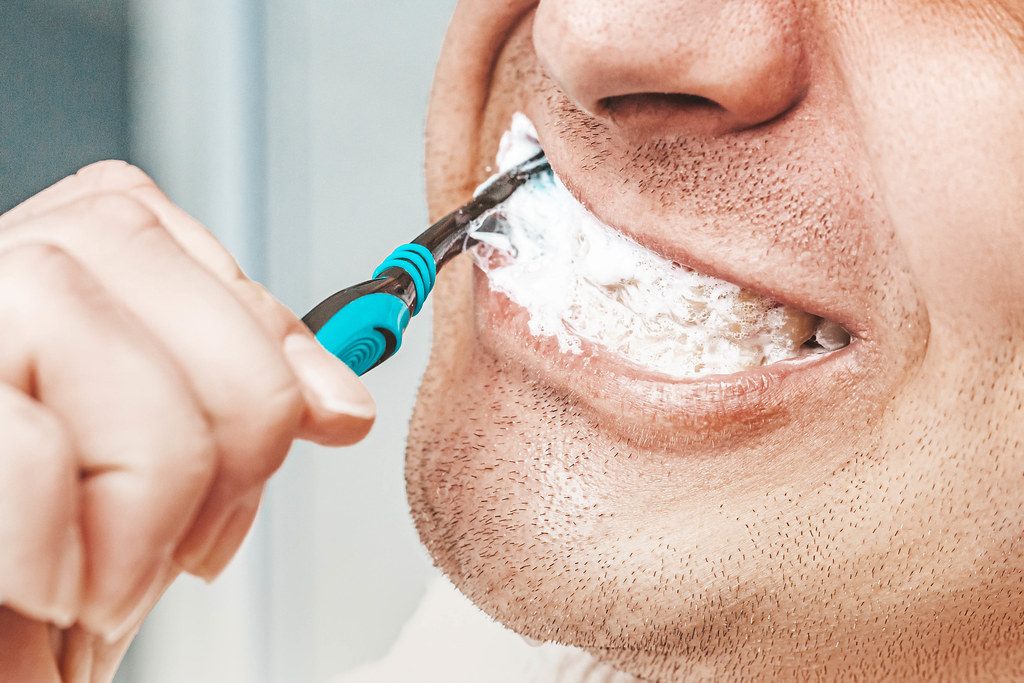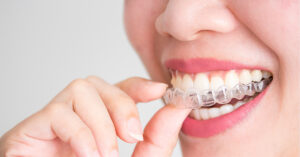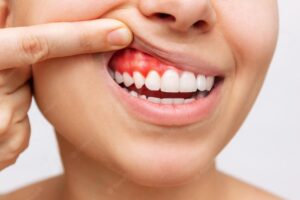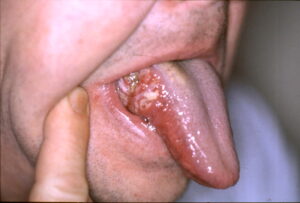You know, patients come into the office with many different questions and many different ideas, and some of them are right on the spot, and others are just a little bit off. So, today what I want to do is just look at five myths that surround dental health that you may or may not believe, but hopefully, once we’ve gone through these, they’ll help you understand your dental health just a little bit more.
Myth: Only sugar causes cavities
The first myth is that sugar is the only thing that can cause cavities. And you know, sugar, simple carbohydrates are really a fuel source for the bacteria that cause cavities. Bacteria take that energy source in and they make an acid as a waste product. That acid is what actually dissolves your teeth. So, what they need is energy, and simple sugar is definitely their number one choice.
But anything that’s a simple carbohydrate works. So, that means that anything like corn syrup or crackers, you know, anything like sticky fruits, fruit juices, fructose, all of those other forms of sugar certainly can cause cavities by giving those bacteria an energy source.
So, when we’re dealing with a cavity problem, we definitely want to look at sugar intake in the diet, and we don’t want to just think of candy or soda (which obviously is a big problem), but we’re also looking at all of those other things as well, like all of those snacks, and you know, even breakfast cereals if you look at how much sugar they have in them, that can be a very significant source as well and often in various forms. (Read some tips on reducing sugar intake).
Myth: You only need to visit the dentist if you have a problem
The second myth that we hear is that you only need to visit the dentist if you have a problem. It’s a good time to visit the dentist if you have a problem for sure, because it’s probably the only way that you’re going to get a real definitive solution to that problem.
But prevention is always the best medicine. This is especially true in dentistry because little problems become big problems. And most dental problems don’t hurt until they reach a fairly significant critical stage. And so, it’s always good to go to the dentist and have things checked out before they become a problem, before you have something that’s talking to you. And so, those checkups are really very valuable.
Myth: Brushing harder means cleaner teeth
Another myth we hear, number three, is that brushing harder means cleaner teeth. So, remember, we’re not scrubbing the sink with our toothbrush. We’re gently cleaning away soft plaque that is sticky (read how to recognize plaque). It’s on the teeth and it needs to be removed mechanically, but we don’t want to over-scrub, because your teeth are, as we mentioned, this mineral surface, and it can actually cause an abrasion along with an erosion of that mineral and slowly wear it away over time.
Furthermore, your gums around your teeth are very thin and relatively fragile, and if you’re scrubbing on them, that can definitely cause the same type of problem, where it’s actually eroding in a sense that gum tissue and causing recession. And that can be repaired but that often then means a surgical problem and it’s usually precipitated by sensitivity and even possibly decay on those softer root surfaces. So, that’s definitely something you want to be aware of.
Myth: Chewing gum is a substitute for brushing teeth
Another myth that I’ve heard sometimes is that chewing gum is a good substitute for brushing your teeth. There is no substitute for brushing your teeth. That sticky plaque that we were talking about, it must be mechanically removed, and if it’s not, it’s going to eventually lead to some type of gum disease, even mild forms like gingivitis or more severe forms like periodontitis, which is bone loss.
And chewing gum can certainly, you know, help with stimulating saliva flow, but there are a couple things about that you want to be careful – that it’s never a sugared gum, it needs to be a sugarless gum, and ideally with Xylitol in it which is a very good natural sweetener that is anti-cavity. But we also want to make sure that gum chewing isn’t just seen as a substitute, because we’re simulating saliva or giving our teeth a sense that something’s happening. Because it’s just not. There is no substitute for brushing and flossing.
Myth: Tooth loss is inevitable
Number five is a myth that I hear a lot – tooth loss is inevitable, it runs in my family. You know, there are certainly some genetic links to oral health for sure, but tooth loss is not inevitable. (Read possible reasons for loose teeth).
Really, there are very few people in the population where I would say absolutely there’s no way that we can stop it. Gum disease is not curable and it is the most common way people lose their teeth. But it’s absolutely controllable in 99% of the cases. It can take a lot of effort and a lot of diligence, but tooth loss is not inevitable. There’s no reason why most people shouldn’t maintain all or most their teeth for their entire life if they have the right habits, they get the checkups that they need, and the treatments that they need along the way.
At Express Dentist, we have a trusted network of dentists around the country, and if you have a myth you want to explore a little more, you just need some more information, you need a checkup, you need a cleaning, go ahead and give us a call and let us know what you’re looking for. We can help connect you with a dentist in our network and that can help you get set up with somebody that you can go in and see on a regular basis or if you have an emergency. And so, if you learn more about your oral health and you go in and do the preventive steps that you need to do along the way, you should enjoy good dental health for the rest of your life.
About the author
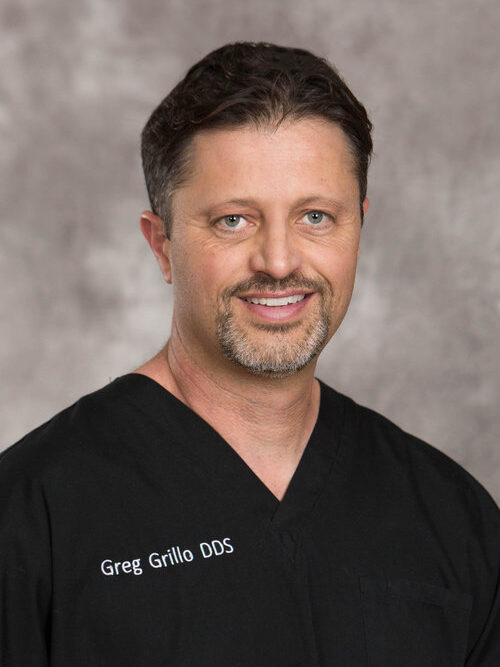
Dr. Greg Grillo
Dr. Greg Grillo DDS studied at the University of Washington where he received a bachelors degree with Honors and later attended dental school on the same campus. Following school Dr. Greg served in the United States Navy as a dental officer. During this time he received advanced training in specialty areas of dentistry while also treating families of members of the military.
As well as sharing valuable information on dentistry and oral health, Dr. Greg remains a practicing dentist to this day. He works with families in the Okanogan Valley where he lives with his wife and three children.

